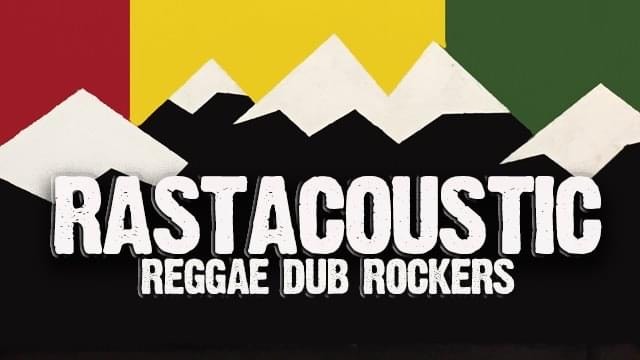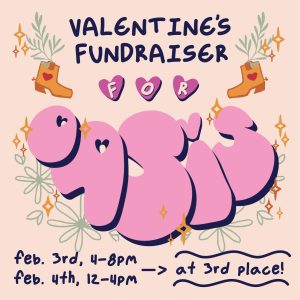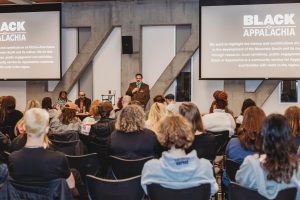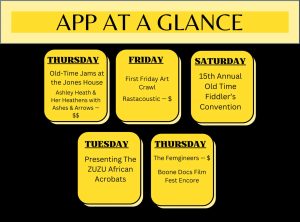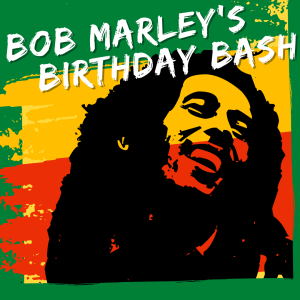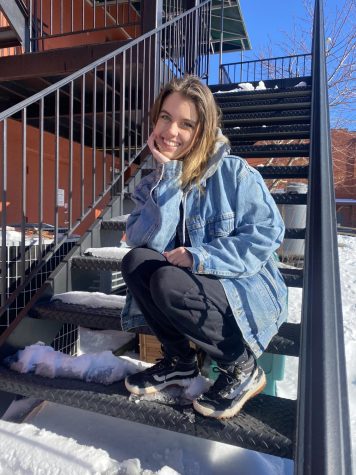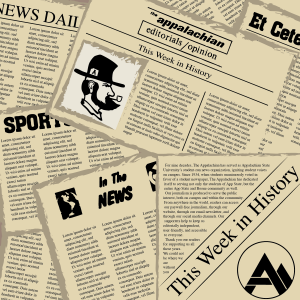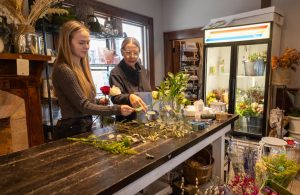Rastacoustic honors Bob Marley’s legacy
February 3, 2023
The mountain blues meet Caribbean moods as local band combines roots reggae with Appalachian folk style music. Rastacoustic Band is a charismatic ensemble that plays a mix of classic reggae songs coupled with their own original melodies and a number of familiar covers.
The band’s main trio includes Peter Brown, guitar, key and vocals; Shawn Roberts, drums and percussion; and Justin Butler, bass and vocals. All three members have done a number of performances, have had their features in a multitude of bands and have performed all across America, Canada and Japan on their musical journey.
“People ask if we’re a reggae band, and I tell them ‘well, we’re three guys who have known each other and become friends through music, we love listening and playing reggae music, and we love sharing it.’” Roberts said.
Brown and Butler had initially started the band after wanting to play some reggae after a hiatus from their musical excursions to focus on their careers and personal lives. The two had been in multiple bands prior to Rastacoustic and after a couple rehearsals in Butler’s home studio, started to play small gigs again.
The group of two continued to play at spots like The Pedalin’ Pig. At that time, Brown had created a transportable suitcase drum and Butler had a three-quarter stand up bass.
From there, the band evolved to include Roberts on percussion.
“Shawn, he started playing some percussion with us, because we were still trying to do it kind of strictly acoustic and keep it small, you know, but really just evolved because of the sound,” Brown said. “We just wanted it to sound better and better.”
Brown first discovered the reggae scene in Boone after a friend who had introduced him to the genre mentioned there being two reggae groups, Natural Healing Tribe and Selah, in the mountains. This was in the ‘90s after Brown’s acceptance into App State.
Brown said the two groups played a lot of original and cover songs, similar to Rastacoustic performances. In fact, Tate Rawl of Natural Healing Tribe will be joining the band at their performance this weekend.
All three are App State alumni.
Brown graduated from App State in 2000, a couple years prior to bandmate Roberts. Brown majored in middle school education and taught middle school for eight years before his career took off in another direction.
Roberts and Butler also possess education degrees and work at local institutions. Butler is the director of music and an instructor at Caldwell Community College. Roberts teaches humanities courses at both Caldwell Community College and App State as well as private and group instruction through the ASU Community Music School.
The group performs a number of classic reggae songs coupled with their own original songs, like “Virus Crisis” and familiar covers ranging from Grateful Dead and Beastie Boys to The Beatles and Cypress Hill.
Their performance this weekend is at Boone Saloon and is a tribute performance for Bob Marley’s birthday consisting mainly of beloved Marley covers like “Three Birds” and “Positive Vibration.”
The performance will feature local Boone artists Kattagast on vocals and ukulele. Kattagast will be joined by Rawl on lead guitar and Jeff Dickens on percussion and vocals.
Brown said the group’s collaborative performances are inspired by what artists they know in the area and what instrumentals they can introduce to their sound.
He said that the group holds the philosophy that if something feels good in the moment to just throw it in there and “sometimes we like to believe it’s coming from the same ultimate source anyway.”
At the beginning of the group’s journey they wanted to be mainly acoustic and realized that the instrumentation in Appalachia is not far from the sounds of Jamaica.
“Heavy on the strings in a real drum kit, you know, percussion, being controlled by strings,” Brown said. “And so it was kind of like a melding of this region’s music and reggae, you know, what we were familiar with and excited about.”
American roots music “draws on the lived experience of ordinary men and women, who were and often still are defined and limited by cultural constructions of race, class and gender,” according to PBS. The music reflects how Americans have struggled against oppressive social and economic conditions and how music can be used as a medium that celebrates and dignifies that identity, which is similar to the message of Bob Marley’s root music of Jamaica.
Marley’s goal was to spread stories through music. The sound he wished to convey with new Jamaican music was “like American R&B, the long-term result of how Black music survived and evolved as a means of maintaining community in unsympathetic lands. It was music that gave a displaced population a way to tell truths about their lives and a way of claiming victory over daily misery, or at least of finding a respite,” according to the “Rolling Stone.”
The group identified that both bluegrass and reggae have similar roots, with the banjo and other instruments originating from Africa.
“A lot of the rhythms in Caribbean music, South American music and even our music here is, you know, a lot of our African rhythms that came over through slavery,” Brown said. “So you know, then you got a lot of lyrical content in roots reggae music.”
Brown said what makes reggae roots music is conscious lyricism.
“To me, part of what makes it roots reggae is that it’s conscious, or it’s Afro centric.” Brown said. “Or it’s conscious like it’s also Judeo Christian, lyrically natured.”
The group shared how the influence of reggae has shaped their spirituality and perspectives on the world.
“Reggae is all about the feel and the message: tearing down the walls, of Babylon, that separate us so that we may live with one another, and take care of one another,” Roberts said. “It speaks directly to the goodness and potential of humans. When we play, everyone feels that and the atmosphere is always positive.”
Brown shared how through the band’s music they’ve also come to form bonds with fellow artists that have expanded their view.
“People that aren’t from where you’re from, people that don’t look like you and as you become friends and closer and closer, then you can have harder conversations” Brown said.
Both Brown and Roberts spoke about how their geological influence of the mountains was intertwined with their love for reggae. Brown wrote a stanza comparing the two after witnessing the natural similarities of both places from his time visiting Jamaica;
“Blue Mountain Jamaica / Blue Ridge Appalachia / Melding and Morphing together / Roots and Blues and Mellow Moods / Roots and Blues and Mellow Moods / Cure for Rude boi attitudes.”
The last line refers to the “rude boys,” or street gangs, that began in Kingston, Jamaica where Bob Marley grew up.
Marley believed in peace, love and equality and according to the “Rolling Stone” article, maintained that if “humankind failed to stand together, it would fail to stand at all.”
“In reggae music, on a worldy level, it’s one love and that’s a song by Bob Marley, yes, but it’s also a philosophy,” Brown said. “One love, one heart, one aim, let’s get together and feel alright.”
Rastacoustic aligns with Marley’s philosophies as their mission statement is “We perform and tour to provide people with a safe place to let loose and be themselves in a positive environment of love and unity. We perform to bring musical diversity and provide a style of music that doesn’t regularly come through our region.”
The band can be reached through their Facebook, Instagram and TikTok, and have uploaded songs and clips to several music streaming platforms and Facebook. The band will be performing at 10 p.m. Friday at Boone Saloon for the “Bob Marley Birthday Celebration.” It’s a $5 cover fee at the door and you must be at least 21 years old to attend.

